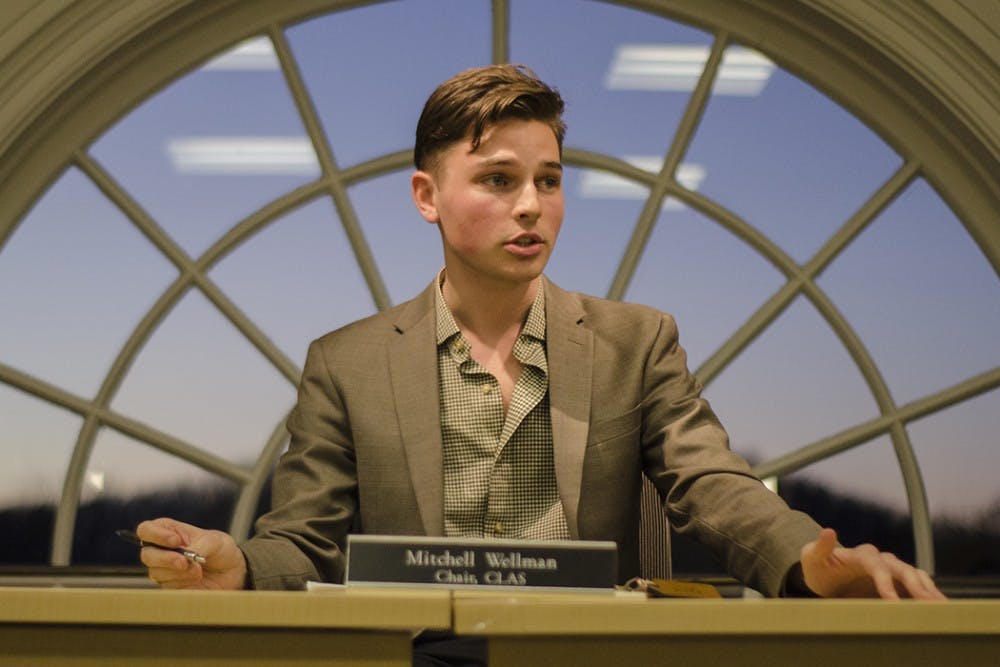The University Judiciary Committee officially welcomed its new executive members and heard remarks from graduating executive members in an official change to new leadership on Sunday.
The outgoing members of the executive board were recognized along with other graduating members of the committee and were presented with cords for Final Exercises. The members also gave remarks both about their time as members and their hopes for the future of the committee.
“You will continue to invite and welcome students from all corners of the University, so you can serve students from all corners of the University,” said Mitch Wellman, the outgoing Chair and a fourth-year College student.
The committee noted the significant achievements of the past year, including hearing 75 cases and completing 100 percent of given sanctions, according to outgoing Vice Chair for Sanctions and Curry graduate student Amy Ackerman.
Other goals included outreach and recruitment of the committee. The UJC was present at activity fairs in both semesters, dorm talks, the UJC awareness week in October and created new Instagram and Twitter pages to better reach the University community.
Out of 120 applications and tests reviewed by the UJC, 42 new members were admitted and 23 out of the 25 available representative positions in the committee were filled. This makes for a “larger and more robust group of judges right at the start of next year” to sit trials, according to Wellman.
The outgoing executive members changed seats with their replacements, who are already involved in existing cases for the next term.
“This is a time of looking both forwards and backwards,” incoming Chair and Law student Peter Bautz said.
The graduating executives expressed their gratitude to the committee they were members of for the past years.
“It has been a pleasure serving you, and serving the University community,” Ackerman said.
Wellman ended his time as Chair by saying the University’s judiciary system was unique in its level of student participation.
“We have a beautiful system of student self-governance and spectrum sanctions that most other universities don’t have,” Wellman said. “We are about second chances, not cutting off students from the community.”





